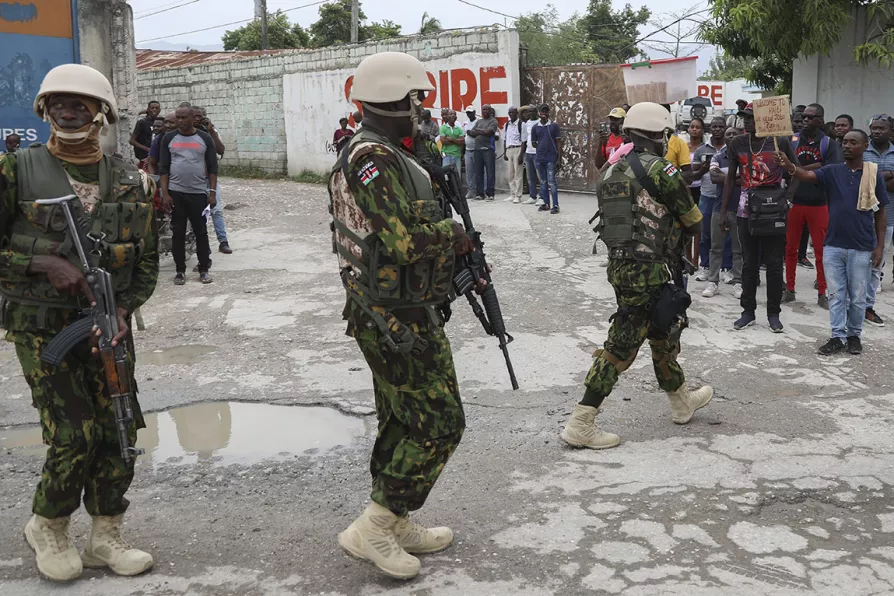
 Kenyan police patrol an area near the international airport as a man holds a sign with a welcome message and a plea for jobs, in Port-au-Prince, Haiti, July 3, 2024
Kenyan police patrol an area near the international airport as a man holds a sign with a welcome message and a plea for jobs, in Port-au-Prince, Haiti, July 3, 2024
“THERE’S no room for failure,” the head of the US-backed multinational force tasked with curbing gang violence in Haiti said on Monday, adding that the UN-backed police mission was committed to ensuring that democratic elections can take place.
Kenyan officer Godfrey Otunge was speaking during a nationally broadcast news conference, giving his first public remarks as the leader of the force that is acting as the face of the US-financed intervention.
The US has pledged over $300 million (around £234m) in support of the Kenyan-led mission.

While Trump threatens to send Haitian gang leaders to El Salvador's terror prison, DANNY SHAW reveals how these paramilitary groups are merely symptoms of US-backed neocolonial rule — the real terrorists are the CIA and international actors arming desperate youth to traumatise an unarmed population













